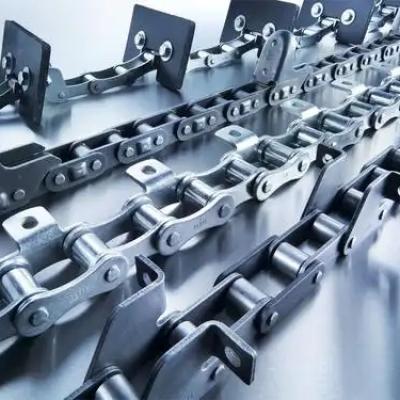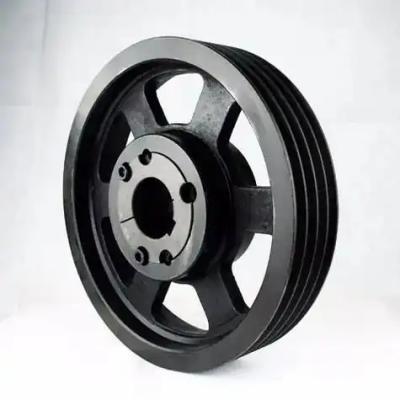Industrial Conveyor Chain and Transmission Application of Sprocket Wheels
Industrial Conveyor Chain and Transmission Application of Sprocket Wheels
Key Points:
Power Transmission: Sprocket wheels are key components in power transmission systems, providing the mechanical interface between the conveyor chain and the driving source (such as motors or Gearboxes).
Material Handling: Conveyor chains and sprocket wheels work together to transport goods, products, or materials along conveyor systems in industries like manufacturing, logistics, and distribution.
Rotational Motion: The sprocket wheels engage with the links of the conveyor chain, converting rotary motion into linear motion to move materials efficiently along the conveyor line.
Precision Engineering: Sprocket wheels are precision-engineered components designed with accurate tooth profiles to ensure smooth engagement with the conveyor chain and efficient power transmission.
Applications:
Conveyor Systems: Integral part of conveyor systems used in industries for material handling, sorting, packaging, and distribution processes.
Industrial Machinery: Employed in various industrial machinery and equipment where power transmission and material transport are essential for production operations.
Automated Systems: Utilized in automated conveyor systems, robotic applications, and assembly lines to streamline material handling and improve operational efficiency.
Power Transmission: Facilitates the transfer of rotational motion and power between conveyor components, optimizing material transport and conveyor system performance.
Benefits:
Efficient Material Handling: Enables smooth and reliable material transport within conveyor systems, enhancing productivity and workflow efficiency.
Reliable Power Transmission: Facilitates efficient power transfer, reducing energy loss, and optimizing conveyor system performance in industrial applications.
Durability and Longevity: Built with durable materials and precision engineering, conveyor chains and sprocket wheels offer longevity, reliability, and resistance to wear and tear.
Customizable Solutions: Available in various sizes, configurations, and materials to meet specific industrial requirements and applications, offering flexibility and adaptability.
Considerations:
Proper Sizing and Selection: Selecting the correct sprocket wheel size, tooth count, and chain specifications to match the conveyor system requirements for optimal performance.
Maintenance and Inspection: Implementing a regular maintenance schedule to inspect, lubricate, and replace conveyor chains and sprocket wheels as needed to ensure efficient operation.
Safety Protocols: Adhering to safety guidelines when working with industrial machinery and conveyor systems to prevent accidents and ensure a safe working environment for personnel.
Installation and Alignment: Following proper installation procedures and alignment guidelines to ensure reliable power transmission, smooth material handling, and optimal conveyor system performance.
Industrial conveyor chains and sprocket wheels are essential components in power transmission and material handling applications, contributing to the efficient operation of conveyor systems in various industrial settings.





